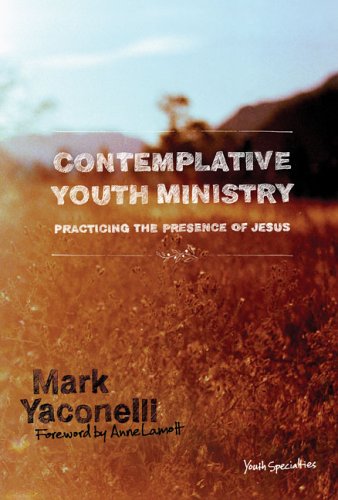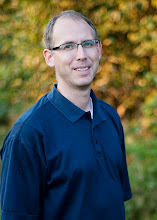Contemplative Youth Ministry

I really wanted to like this book. I've been following Yaconelli's project for years. I've read his MA thesis on Ignatian prayer and adolescents. I've heard him speak. I really wanted to like what he was doing.
And I do.
I have some reservations, hopefully not too nick-picky, but I do like this book. It was almost like reading The Godbearing Life:The Art of Soul Tending for Youth Ministry the first time. When I first picked up Godbearing I was a 24 year old lay youth director at a church. It was as if Dean and Foster knew me and were writing about me and about my feelings and frustration with doing youth ministry. They didn't as much write for my head, although they did that too, they were putting words to a song that my heart had been struggling to sing for awhile. Yaconelli writes about me now, a 34 year old ordained pastor/professor. It isn't as life altering as much as confirming, not a new song for me but one that was in harmony with what I already was singing.
Active Contemplatives
I have a minor obsession with St. Ignatius of Loyola, one of the founders of the Jesuits and one of the most influential men of the past 1000 years. Loyola styled himself as an active contemplative. He had a number of mystical experiences that were so difficult to put into words that he didn't. This was the contemplative side. He also organized and commanded one of the largest religious movements ever. This was the active side. The partnership of these two seems to me to be absolutely essential. With only contemplative we can become narcissitic navel gazers. With only active we can become Dudley Do-rights with the moral depth of a petri dish.
Yaconelli is well aware of Loyola and the heritage we recieve from him. Many of the exercises in the book are culled from Loyola's practices and writings. In fact, Yaconelli wrote his MA thesis on some prayer exercises from Loyola. With that in mind though, I'm a little disappointed that the active side of Loyola did not come out stronger than it did. I'm willing to bet that Yaconelli was trying to correct an imbalance in youth ministry and therefore did not emphasize the active side as much as he did, but I still wish that it was more prominent.
Rooted in Theology?
As well, I didn't find the contemplative as rooted in a robust theology as I would have liked. Yaconelli studied under Howard Rice who struggled to place Reformed theology in dialogue with "spirituality" and Yaconelli surely is aware of the mystical theology tradition summarized in such authors as Bernard McGinn series or Mark McIntosh's Mystical Theology: The Integrity of Spirituality and Theology. Against evangelical/fundamentalist detractors, wouldn't it have been a good idea to struggle with how we understand the interaction of human and divine? After all, the contemplative aspect of spirituality has partly fallen out of practice over the centuries because of the rationalism of the Enlightenment that limited the work of the Spirit. I think it is important to tease out how we can understand the human/divine interaction in the context of contemporary orthodoxy before we proceed with prayer experiences etc. rooted in theological assumptions made in 16th century Spain ie. Loyola.
Breath of Fresh Pneuma
As I've outlined in my post on Anxiety, this book is still one filled with the Spirit despite it's weaknesses. As I ruminate on some of my concerns about it, I realize that they are less about me doing youth ministry using this book as it is with teaching youth ministry. I've already initiated using the discernment process and will be chaning how I do meetings in the fall. Some of the prayer exercises, ones I was already familiar with via Loyola, were worked into a curriculum that I recently wrote. I've widely recommended this book to practicioners I've been speaking to lately. No problem on the doing side.
I will assign this book, without a doubt, but I think that as we train youth ministers we need to push them to think deeply and broadly about what they are going to do. I know that one of Yaconelli's fears was that contemplative youth ministry would be viewed as just another program option to lay beside all of the other fads. Sadly, he has written a book that offers more program ideas than a throroughgoing theological analysis. I look forward to a follow up book or series of articles that probe the theological roots of what he already does so well.



